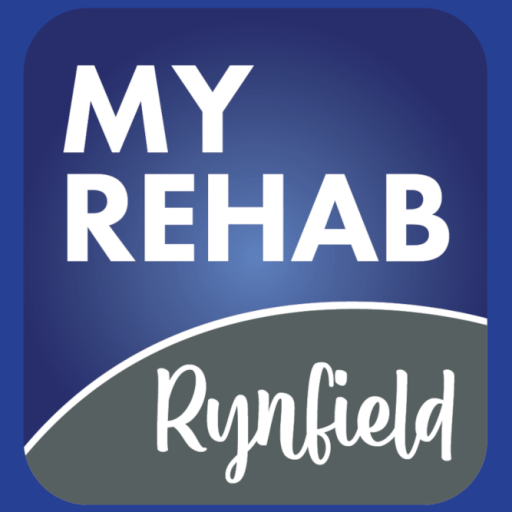Top 5 Advantages of Inpatient Drug Rehab
When considering the benefits of inpatient drug rehab, it becomes clear that the advantages extend beyond mere treatment. The structured environment and round-the-clock supervision offer a level of support that is unparalleled in outpatient settings. But what else makes inpatient rehab stand out? Let’s explore the top five advantages that make it a compelling choice for individuals seeking a path to recovery.
24/7 Supervision and Support
During inpatient drug rehab, we benefit from 24/7 supervision and support from trained professionals to ensure our safety and progress in recovery. Having constant supervision allows us to feel secure and cared for, especially during the challenging early stages of detox and treatment. The presence of dedicated staff members ensures that we have access to immediate assistance and guidance whenever needed, creating a supportive environment that fosters our journey towards sobriety.
Moreover, this continuous support helps us stay accountable and motivated throughout the rehab process. Knowing that professionals are monitoring our progress and well-being encourages us to stay committed to the program and actively participate in therapy and activities designed to aid our recovery. The supervision and guidance provided by the rehab staff also help us navigate any difficulties or triggers that may arise, equipping us with the necessary tools to cope effectively and prevent relapse. Ultimately, the 24/7 support system in inpatient drug rehab plays a crucial role in our successful rehabilitation and long-term recovery.
Structured Environment for Recovery
In the structured environment of inpatient drug rehab, our daily routines are carefully designed to support our recovery journey and provide a framework for progress. From the moment we wake up to the time we go to bed, every aspect of our day is structured to promote healing and sobriety. Meal times, therapy sessions, recreational activities, and even downtime are all part of a well-thought-out schedule aimed at keeping us focused on our recovery goals.
This structured setting helps us establish healthy habits and routines that are essential for long-term sobriety. By following a set schedule, we learn to prioritize self-care, adhere to a routine, and build the discipline needed to maintain a drug-free lifestyle outside of rehab. The predictability and consistency of our daily activities create a sense of stability and security, reducing anxiety and uncertainty that often accompany the recovery process.
Moreover, the structured environment fosters accountability and responsibility. We are encouraged to take ownership of our actions, adhere to rules, and actively participate in our treatment plan. This sense of structure and guidance empowers us to make positive choices and navigate challenges effectively on our path to recovery.
Intensive Therapy and Counseling
Engaging in intensive therapy and counseling plays a pivotal role in our recovery journey at inpatient drug rehab. These therapy sessions provide us with a safe space to explore the root causes of our addiction, understand our behaviors, and develop coping mechanisms. The structured nature of inpatient rehab allows us to participate in various forms of therapy, such as individual counseling, group therapy, cognitive behavioral therapy, and holistic approaches like art or music therapy.
Through intensive therapy, we can address underlying mental health issues that may have contributed to our substance abuse. Therapists help us identify triggers, manage cravings, and learn healthier ways to cope with stress and emotions. Moreover, counseling sessions offer a platform for us to discuss our progress, setbacks, and goals in a supportive environment.
Peer Support and Community
At inpatient drug rehab, we find strength and understanding through the invaluable support of our peers and the sense of community that surrounds us. Being surrounded by individuals who are going through similar struggles creates a unique bond that fosters empathy, encouragement, and accountability. In group therapy sessions, we share our stories, listen to others, and offer insights that can only come from firsthand experience.
The peer support we receive is a powerful motivator during our recovery journey. Knowing that we are not alone in our challenges and having others cheer us on in our victories boosts our confidence and determination. Moreover, having a sense of community within the rehab facility creates a safe space where we can openly express ourselves without fear of judgment.
Through shared experiences and mutual understanding, we build connections that can last a lifetime. The friendships formed in inpatient drug rehab often become a crucial part of our support system even after we leave the facility.
Focus on Long-Term Sobriety
Our primary goal during inpatient drug rehab is to cultivate a strong focus on achieving long-term sobriety through personalized treatment plans and continuous support. By emphasizing long-term sobriety, we ensure that individuals not only detox and overcome immediate challenges but also develop the necessary skills and mindset to maintain their recovery journey in the long run.
Through individualized treatment plans tailored to each person’s unique needs and circumstances, we address the root causes of addiction and equip individuals with coping mechanisms to navigate triggers and cravings post-rehab. This personalized approach enhances the likelihood of sustained sobriety by providing a solid foundation for individuals to build upon as they reintegrate into their daily lives.
Furthermore, our continuous support system, which includes counseling, therapy sessions, and aftercare programs, plays a crucial role in reinforcing positive behaviors and offering guidance during challenging times. This unwavering support network encourages accountability and motivation, fostering a commitment to long-term sobriety beyond the confines of inpatient treatment.
What Types of Recreational Activities Are Available in Inpatient Drug Rehab?
In inpatient drug rehab, various recreational activities are often provided to promote physical and mental well-being. These activities can include yoga, art therapy, sports, group outings, and mindfulness exercises, enhancing the recovery experience.
Can Family Members Visit During Inpatient Drug Rehab Treatment?
Yes, family members can usually visit during inpatient drug rehab treatment. These visits can provide emotional support, motivation, and help in the recovery process. It’s essential for maintaining connections and fostering a healthy environment.
Are Medications Provided for Detoxification in Inpatient Drug Rehab?
Yes, medications are provided for detoxification in inpatient drug rehab. Our facility ensures that individuals receive proper medical support during this crucial phase of recovery. We prioritize safety and comfort throughout the detox process.
How Are Meals and Dietary Needs Accommodated in Inpatient Drug Rehab?
In inpatient drug rehab, meals and dietary needs are accommodated through a variety of options tailored to individual preferences and requirements. Our facility ensures a nutritious and balanced diet, offering support for any specific dietary restrictions or preferences.
Is There a Maximum Stay Limit in Inpatient Drug Rehab Programs?
Yes, there is usually a maximum stay limit in inpatient drug rehab programs. Our facility allows for a stay of up to 30 days, which helps us provide effective treatment within a structured timeframe.
Inpatient drug rehab offers a comprehensive and effective approach to addiction recovery. With 24/7 supervision, structured environments, intensive therapy, peer support, and a focus on long-term sobriety, individuals are provided with the necessary tools and support to overcome their addiction and build a solid foundation for a healthier future. Choosing inpatient rehab can be a life-changing decision that sets individuals on the path towards lasting recovery and a brighter tomorrow.

